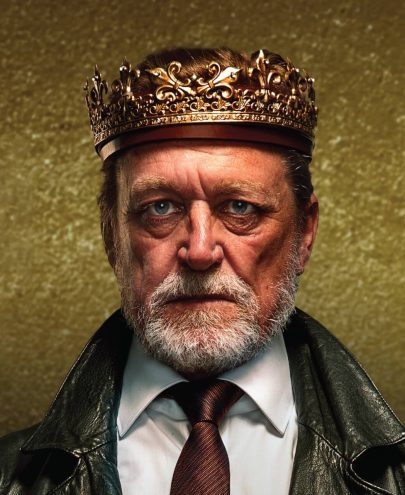Mar 3, 2016 Theatre

Playwright Jamie McCaskill volunteered for a year at Te Whariki Manawahine O Hauraki, the Hauraki women’s refuge, with the intention of creating a theatrical response. McCaskill’s surrogate in the play is Maisey, a filmmaker shooting a documentary about the refuge to raise awareness of violence against women.
Kali Kopae as Maisey sets up a tripod and tells us what she’s learnt. Her eyes have been opened. The “if it was me…” and “why don’t you leave him” type judgements are ignorant of a much more complex picture.
Intellectually we know this, and the stories that we will then see in Not in our Neighbourhood reinforce these lessons. That much is expected. But what this opening won’t prepare you for is how hard this play hits emotionally. A knot forms early on in your throat, and stays there for the rest of the performance.
A knot forms early on in your throat, and stays there for the rest of the performance.
The doco is a clever device to get the characters expositing for us, but the success of this play is in its precise theatricality. Kopae is at one moment the chirpy refuge co-ordinator Moira, then physically melts into Cat, a woman who has used the service for a number of years, a deep well lying behind her eyes. Kopae claps and turns to change characters during a heated dialogue exchange. In a seated interview, she rotates her chair around the compass points to approximate a cut in camera angle. Ignoring the well-stocked lighting rig of Q Loft, Jennifer Lal instead uses household lamps around the edge of the traverse stage, suggesting the homely feel of the safe house.
There are others to meet too, also played with a compelling life-force by Kopae . If Cat is water, Sasha is fire, a 23 year old mother of five. She says she’s in-between places, here because she doesn’t have anywhere else to go.
Sasha storms down to her local MP, demanding help from CYFs and “Paula Benefit”, so she can get access to her kids. “I’m a public, so you’re my servant” she tells him, but he doesn’t want to know. Cat goes to Work & Income and politely inquires why she’s no longer receiving her sickness benefit. She doesn’t get anywhere either. Sasha reckons the staff are taught how to be pricks in their training sessions. We see frustration and buck passing as they butt their heads against an ambivalent system.
In what may be a surprise visitor for some, Teresa also turns up on the doorstep. She plays nervously with her ring and her voice breaks as she asks, “Is this the woman’s refuge?”. She’s 57, a council worker, married for 35 years to a well to do businessman. She thinks he’s started to resent her for becoming a person unto herself. A surprise birthday party did not end the way she had planned.
We’re shown their bravery. In a harrowing scene, Cat slowly and methodically, reads out her victim impact statement in court, in front of her rapist. Her family ties have been shattered, some people haven’t believed her. She faces a dark and scary unknown. Our hearts break.
The refuge is a safe female space, but the men in their lives can continue to intrude. We don’t get to hear much of their stories, but the play gives us enough to realise that if you open one box, there’s another underneath. Why are they angry? What has made them behave this way?
McCaskill, who also directed, makes the point that this is not a socio-economic problem, but a larger sickness. Deputy Police Commissioner Mike Bush has said that police attend a family violence related callout every six minutes. It is believed that only 20 percent of family violence cases are reported. We as a country have a lot of shame to wear.
McCaskill reflects that “from my experience domestic violence has no prejudice and affects people everywhere”. McCaskill is honest enough not to give us any definite resolution, no matter how much we might want it. The refuge can provide the safe space, but it can’t fix the problem. Moira is upbeat, no-one should have to live with violence, we will get there. But then, I guess you have to be upbeat to keep going.
I found Not in our Neighbourhood illuminating. I felt thankful that such spaces exist, and troubled that they need to. The stories feel real and authentic. Too real. Somewhere in New Zealand in a refuge right now are a Cat, a Sasha and a Teresa. Not in Our Neighbourhood will finish its Auckland Arts Festival season with a show in Glen Innes on Saturday. Let’s hope Tikapa Productions are supported to continue to travel to neighbourhoods around this country.
Read more: Susannah Walker interviews Not in our Neighbourhood’s playwright
Not in our Neighbourhood, Q Theatre, until March 4; Te Oro, Glen Innes, March 5





